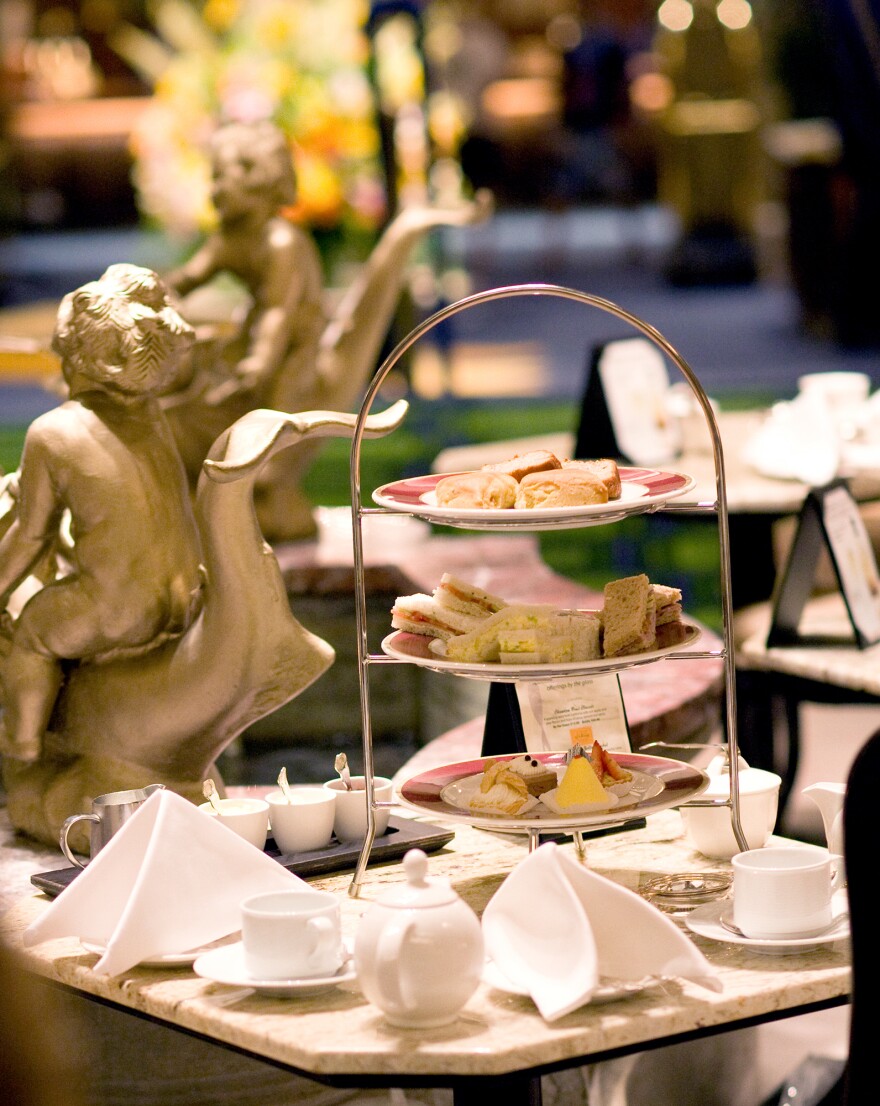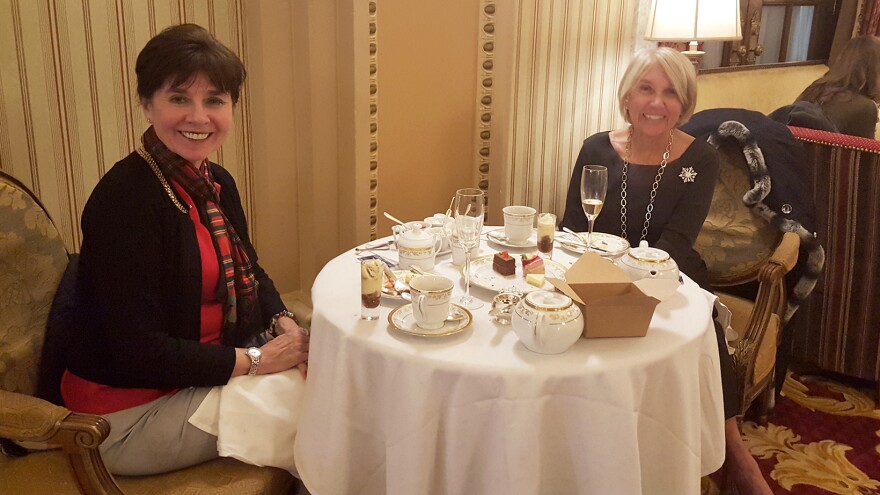Christmas is a time for coming together with family and loved ones. Some 200 years ago, it was also a time to get stinking drunk in public.
"I guess [the way] Christmas used to be celebrated, you'd just get drunk," says University of California, Santa Barbara historian Erika Rappaport. Indeed, Christmas was one of the few times during the year that working-class men had off, and many would use it to blow their wages drinking and gambling at the pub, she says. It was not uncommon to see women storming into bars with frying pans raised to drag home their inebriated husbands — and what was left of their paychecks.
Enter the temperance movement. In the 1830s, crusaders against public drunkenness set their sights on Christmas. "They wanted to make it more of a family affair," Rappaport says.
So these teetotalers decided to, well, make it a tea holiday. Members of the movement in both the U.S. and the U.K. would hold massive tea parties, often on Christmas Eve, in halls festooned with pine tree boughs and fruit. As many as 4,000 working and middle-class attendees would drink tea at long tables, while listening to a sermon or the testimony of reformed alcoholics preaching the virtues of an alcohol-free life.
"How in the world did they heat enough water to make the tea?" Rappaport laughs.
Rappaport, who has written about temperance tea parties, says they set the stage for afternoon tea — a kind of fancy-schmancy snack time that became popular with the elite in England around the same time. Legend has it that the Duchess of Bedford popularized the tradition when she started inviting her gal pals to her room for refreshments between lunch and dinner. Large hotels in the U.S. and especially in the U.K. also took to the trend, and began offering elegant afternoon tea service in the late 19th and early 20th centuries.

In the past few decades, the afternoon tea tradition has come full circle: Hotels on both sides of the pond have been resurrecting the public Christmas tea — as an antidote not to seasonal raucousness but to seasonal stress.
The biggest change from the usual afternoon tea service is the food, says Jason Deville, executive assistant manager for food and beverage at the 150-year-old Willard InterContinentalhotel in Washington, D.C.
"It's more of a focus on holiday flavors," he says, "a lot of cinnamons, a lot of nutmeg, a lot of changes for the desserts" that come loaded on three-tiered trays. The traditional finger sandwiches also get kicked up a notch — with fillings like caviar, foie gras and smoked salmon. It's a far more lavish spread than the bread and butter that would have been offered at a temperance tea.
The Willard, one of D.C.'s most opulent hotels, began offering Christmas tea in 2006. Deville says the recent tradition recalls a time when stylish ladies would wander down the hotel's main hallway, Peacock Alley, to shop, be seen and, presumably, drink tea. The hotel now uses that space for its tea service.
"I think, in a sense, they were trying to re-create that Old World feeling of the hotel and go back to some of its roots," Deville says.
The Christmas tea tradition seems to have found fans among harried Americans looking for respite from the holiday hustle. Deville says it's the busiest time for the Willard's tea service. And the same is true at the luxurious Drake Hotelin Chicago, which longtime staff swear has been serving Christmas-themed teas "since at least the '70s," according to Lynda Simonetti, the Drake's marketing and PR manager.
"For holiday tea, we literally have thousands of people. Just on Saturday, we had 800," she says.

Both Deville and Simonetti say many Christmas tea guests are families — moms and daughters, aunts and grandmothers. Simonetti says: "People are trying to make memories."
That's certainly the case for sisters Ginger Apyar and Jane Hopson, who've made Christmas tea at the Willard a family tradition. "You know, you just want some refinement," Hopson says.
Last Wednesday, Hopson boarded a 6:15 a.m. flight from Chicago to meet her sister in D.C. for their holiday tea ritual. She had a ticket to return home only 12 hours later. It's a long way for a short trip. But to Hopson, it's worth it.
"We don't see each other that often," she said, after sipping black tea and nibbling a pumpkin-spice scone under the evergreen-adorned sconces of the Willard's Peacock Alley. "And it's a nice thing to do as a Christmas tradition."
It's a connection between Christmas, tea and family that would have pleased the temperance crusaders — though they surely would have winced at the champagne the sisters enjoyed with their scones.
Tea Tuesdays is an occasional series exploring the science, history, culture and economics of this ancient brewed beverage.
Whitney Blair Wyckoff is a D.C.-based writer and editor.
Copyright 2021 NPR. To see more, visit https://www.npr.org.


